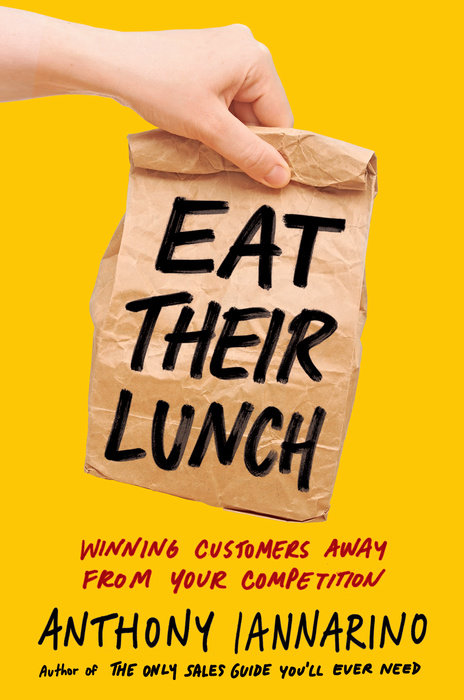The Gist:
- When you know you’ll have the same conversation multiple times, you can improve your results by designing effective language.
- Your clients share similar problems, concerns, and questions. Recognizing the patterns lets you prepare to address them better.
- It benefits you to script responses, something that does require that you sound scripted.
Any question that you receive more than one time requires an unbelievably effective answer, which you should write down (and update occasionally) so you don’t have to keep recreating it from scratch. Despite this principle, some salespeople do not believe they need a sales script. They are generally unaware that they are using a script, repeating themselves over and over, but often using less effective language. Listen to a non-scripted salesperson making cold calls and you’ll find zero variation in their sales pitch from one call to the next.
But when these anti-scripters get a question like “why should I buy from you,” they fall back on a stumbling, rambling, nonsensical response that does nothing to convince their prospective client that they have found their future strategic partner. If you don’t have a scripted response for this prompt ready, you are better off saying something like “I am not sure that you should. We’re going to need to explore that a bit more to find out. Can I ask you to share with me . . .?” You could also respond, “There are several factors that are critical to producing the results we’re talking about, and our clients choose us when these three things are true.” Both replies emphasize conversation and counsel.

Recognizing Your Client’s Patterns
In every industry, there is a common set of outcomes, challenges, problems, and opportunities. This lack of variation is helpful, because once you recognize the common concerns and questions, you can capture the information you need to craft an effective answer—one that creates value for your contacts and positions you as someone who understands their needs and has the experience to improve their results.
When clients are compelled to change, it is because they want or need to improve their results in some area. Sometimes you find a prospective client with a well-defined problem and a good understanding of what it going to take to resolve it. Other times, your conversations during discovery will reveal that your prospective client isn’t producing the best outcomes available to them and will compel them to change. These two different scenarios require distinct approaches, even though most salespeople are still saddled with a legacy sales approach built on the theory that all prospects are trying to solve a problem and need only be forced to confess that they have one.
Your contacts tend to have the problems, the same concerns, and the same questions. Unless you are new to your role or your industry, you have already been exposed to most of those issues—occasionally you’ll hear a brand-new question, but usually it’s either something from way out in left field or a challenge designed to throw you off your game.
Because you know what your clients need to make a good decision about the solution they need, the different models they might explore, the varying ways they might improve their results, and what defines the right pattern, you know what conversations you are going to need to master. Yes, you do need to master these conversations! Unlike the Spanish Inquisition, you only have two weapons to bring in new business: conversations and commitments.
Effectively Responding to the Client’s Patterns
When you hear the same questions, the same prompts, and the same problems and challenges, you can streamline your communication, eliminating the rambling, wandering, hoping-to-eventually-bump-into-something coherent attempts at an answer. That aimless throat-clearing not only wastes time but can also cause your client to lose confidence in you and your advice, even if you eventually find the right words.
As a professional salesperson, one whose effectiveness is found in your ability to create value for your clients through conversations, you should not have to struggle to find those words. There is a difference between sounding scripted and using a script, planned dialogue, or talking points. Even though selling requires you to think on your feet and respond to whatever comes your way, there is no reason to treat every conversation as if it’s the first time you’ve heard the question.
If you have ever answered a client’s question only to realize (with regret) that you omitted key points that would have improved your answer, you understand the value of being intentional with your language—especially when it comes to your prospective client’s concerns. Most companies focus on scripts for cold calling, believing that’s the only time good language is necessary. But it is a mistake to treat the rest of the sales conversation as less important or somehow easier to navigate.
Overall, any question or conversation you get more than once should cause you to write and learn seriously powerful language: the kind that establishes you as a professional, an expert who has the experience to respond to every prompt, without sounding like they are reciting the Pledge of Allegiance.’

Fortune Favors the Prepared
Why should I buy from you? Your company failed me in the past. Your price is higher than every one of your competitors. We tried something like that but it didn’t work. I am the person making this decision. Ms. Smith doesn’t take calls from salespeople. I am not interested. What kind of deal can you give me? Just send me some information. Email me your proposal and pricing. I am going to talk this over with my team in the next two weeks, and I’ll get back to you. Call me back next quarter. What makes you different? How do you guarantee my results?
It might feel like you’ll encounter an endless variety of questions and concerns during the sales conversation, but the short list above suggests that the Pareto principle is in effect, with 20% of the questions dominating the conversations. While you may not be able to design excellent language for the rare long-tail conversation, you can improve your sales results by addressing the conversations you engage in most often.
Do Good Work
- What are the common prompts you hear from clients in the sales conversation?
- Write down five bullet points for every question you frequently hear from clients, as a starting point for a script.
- Find a peer who will join you in reviewing your responses and working to improve the effectiveness of your language.

Essential Reading!
Get my 3rd book: Eat Their Lunch
"The first ever playbook for B2B salespeople on how to win clients and customers who are already being serviced by your competition."
Buy Now







.jpg?width=768&height=994&name=salescall-planner-ebook-v3-1-cover%20(1).jpg)


